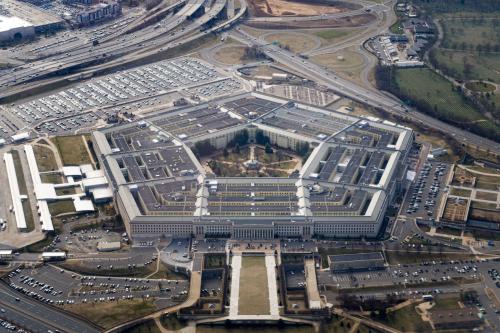Yes
With the end of the war in Afghanistan in sight, the United States is making a mistake with its reluctance to commit U.S. troops to an international peacekeeping force. U.S. participation in the multinational force called for in the Bonn accord establishing an interim government for Afghanistan is essential to bringing stability to this heavily armed country after 23 years of conflict.
Washington clearly has a vital national interest in restoring Afghanistan’s stability. The United States went to war not only to destroy Al Qaeda and overthrow the Taliban regime but also to make sure that Afghanistan never again becomes a terrorist haven. That requires a sustained American effort to win the peace.
The interim government agreed to in the Bonn accord needs help if it is to restore order and ensure security in Afghanistan. The United States’ allies in Europe are ready to do their part. Britain, our strongest supporter in the war, is ready to lead the force. But the administration remains opposed to using U.S. troops for this purpose. “There’s nothing wrong with nation-building,” Condoleezza Rice, the national security adviser, remarked earlier, “but not when it’s done by the American military.”
A major U.S. and allied peacekeeping operation in Afghanistan would be needed only for a limited time—a matter of months, not years. The need is greatest now, when competition for political advantage is most intense and the humanitarian situation most urgent. Once stability has been assured in key areas, responsibility for maintaining essential security can be transferred to the Afghans themselves or, if they are not ready, to an international force drawn from other Muslim countries.
Washington’s refusal to join in the peacekeeping operation could reduce the sympathy and public support that the United States has enjoyed in Europe and elsewhere since Sept. 11. It would give credence to critics who say that the United States is a “high-tech bully,” more interested in destruction than in reconstruction.
Concrete U.S. support for the peacekeeping operations would do more than help ensure its success in Afghanistan. It would also help ensure allied support for and participation in the administration’s next steps in the ongoing war against global terrorism.
Charles V. Pena, Senior Defense Policy Analyst, Cato Institute
No
Delegates at the U.N.-sponsored talks in Bonn, Germany, have signed a landmark accord to set up an interim, post-Taliban government in Afghanistan representing a broad range of ethnic groups and regions. Pashtun tribal leader Hamid Karzai has been named chairman. Whether a U.N. peacekeeping force will be part of the transition is still in question. But one thing is clear: The Unites States should just say “no” to being part of such a force.
First, an agreement between delegates in Bonn (who only represent part of Afghan society) does not necessarily translate into an agreement between all the factions on the ground in Afghanistan. Tribal warlords from all the various ethnic factions have laid claim to villages and areas, creating fiefdoms with their own rules and customs. Whether they will agree to what the delegates in Bonn have signed remains to be seen. While the hope is for a cooperative, representative and stable government, the history of Afghanistan is the opposite. Certainly the prospect of the different ethnic factions turning on each other with an ensuing civil war is a real possibility. Thus, the United States should not put itself in the position of being caught in the crosshairs should such a shooting war break out.
Second, one of the reasons the U.S. military is enjoying success with operations in Afghanistan is because U.S. forces are not viewed as invading miliatary conquerors. The U.S. objectives in Afghanistan are to eliminate Osama bin Laden, Al Qaeda and the Taliban—and the anti-Taliban Afghan opposition is more than happy to oblige us. But the Afghans have a rich history of fiercely defending themselves against foreign invaders (witness the former Soviet Union in the 1980s), and the United States, with a U.N. fig leaf, should not put itself in a position of being seen as an outside force trying to impose its will on this Muslim nation.
Last, but not least, a U.S. military presence in Muslim countries is a motivating factor for terrorists to launch attacks against the United States. Bin Laden’s main reason for attacking America is the presence of the U.S. troops in Saudi Arabia. America needs to learn from this and not repeat the same experience in Afghanistan. As the leader of what could be interpreted in the Muslim world as the occupying force, the United States would probably inadvertently help recruit more terrorists and would be painting a bull’s eye on itself for further attacks.
The Brookings Institution is committed to quality, independence, and impact.
We are supported by a diverse array of funders. In line with our values and policies, each Brookings publication represents the sole views of its author(s).



Commentary
Op-edAt Issue: Should U.S. Troops Participate in an International Peacekeeping Force in Afghanistan?
December 21, 2001